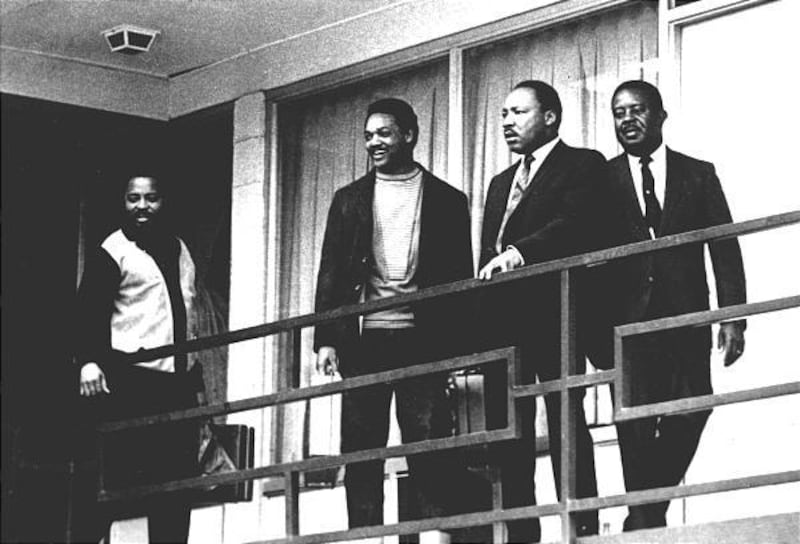The Trump administration on Monday released thousands of pages of records related to the 1968 assassination of Martin Luther King Jr.
The King family issued a statement related to the release, asking the public to engage with the files with “empathy.” The information was under a court-ordered seal since 1977, dating from when the FBI first gathered evidence in the 1950s and 1960s, and turned it over to the National Archives.
The National Archives organization noted that many of the records related to King’s assassination were not “available to the public,” but the agency was coordinating with other federal agencies and the executive branch to gather remaining records.
“The National Archives is working with other federal agencies to review and release records related to the assassination of the Reverend Dr. Martin Luther King, Jr.,” the agency said on its website.
Advocates say there was little new information released in the batch of records, including FBI wiretap recordings of King and other materials that are sealed until 2027, The New York Times reported.
Here’s what we know about the recent batch of records:
Records release
The administration unexpectedly released the files on Monday afternoon.
President Donald Trump signed an executive order in January looking to declassify the records related to the assassinations of both King and former President John F. Kennedy.
The records released Monday show a sample of investigative documents from the FBI, internal memos and surveillance.
Some files released were not legible and have deteriorated over time, with the National Archives noting that each of the documents shown were the “best copy available.” Other documents were titled “Resistance Information Report” and detailed the examination into the “Poor People’s Campaign,” and King’s later demonstrations shortly before his death. The release included information from the CIA and the House Select Committee on Assassinations.
A review of the documents conducted by The Washington Post did not provide new information about the FBI surveilling King and if convicted assassin James Earl Ray was associated with the federal agency, like the King family had previously claimed.
Trump administration remarks
Director of National Intelligence Tulsi Gabbard shared that the administration was releasing more than 200,000 files related to King’s assassination after “nearly 60 years of questions.”
“The documents include details of potential leads, internal FBI memos detailing the progress of the case, information about James Earl Ray’s former cellmate who stated he discussed with Ray an alleged assassination plot, and more,” Gabbard said in a post online.
Gabbard also thanked Trump for signing the executive order to digitize, declassify and release the files after an “unprecedented interagency” effort.
Attorney General Pam Bondi also highlighted the Department of Justice’s role in releasing the files, noting that it was the result of months of collaboration between multiple agencies.
“The American people deserve answers decades after the horrific assassination of one of our nation’s great leaders,” Bondi said in a statement. “The Department of Justice is proud to partner with Director Gabbard and the (Office of the Director of National Intelligence) at President Trump’s direction for this latest disclosure.”
King family statement
King’s two living children, Martin III and Bernice, released a statement about the documents detailing their father’s assassination becoming publicly available. They noted that his murder has long been “a subject of interest, captivating public curiosity for decades.” The Kings said his death has been an intense personal grief for their family.
“We ask those who engage with the release of these files to do so with empathy, restraint, and respect for our family’s continuing grief,” their statement said.
They also have asked the public to review the documents through a historical context and noted former FBI Director J. Edgar Hoover’s relentless targeting of King.
While leading the bureau, Hoover wiretapped King’s telephone, bugged his hotel rooms and used people to gather information on the Civil Rights activist, The Associated Press reported.
The Kings said their father was targeted in an “invasive, predatory, and deeply disturbing” way that spread disinformation. They argued Hoover wanted to destroy King’s reputation and disrupt the Civil Rights Movement.
“While we support transparency and historical accountability, we object to any attacks on our father’s legacy or attempts to weaponize it to spread falsehoods,” the Kings said.
They asked the public to move forward using the lessons of their father and bring “equity, justice, and peace for all.”
King was assassinated in Memphis, Tennessee in April 1968. His murder came several years after he successfully moved the nation forward through notable demonstrations and speeches, and former President Lyndon B. Johnson signed the Civil Rights Act of 1964.
At the time of his death, he was focused on economic injustice and the Vietnam War abroad and was visiting with striking sanitation workers in Memphis. His family has long questioned if Ray acted alone in the assassination, asking the justice system to reexamine the case.
The family said they will be reviewing the newly released files and will assess if it offers “additional insights beyond the findings our family has already accepted.”
Experts say they aren’t sure the new batch of files will prove that the FBI was involved in King’s death, but it’s a lot of files to dig through and they must be viewed with “an eye of suspicion,” the AP reported.



